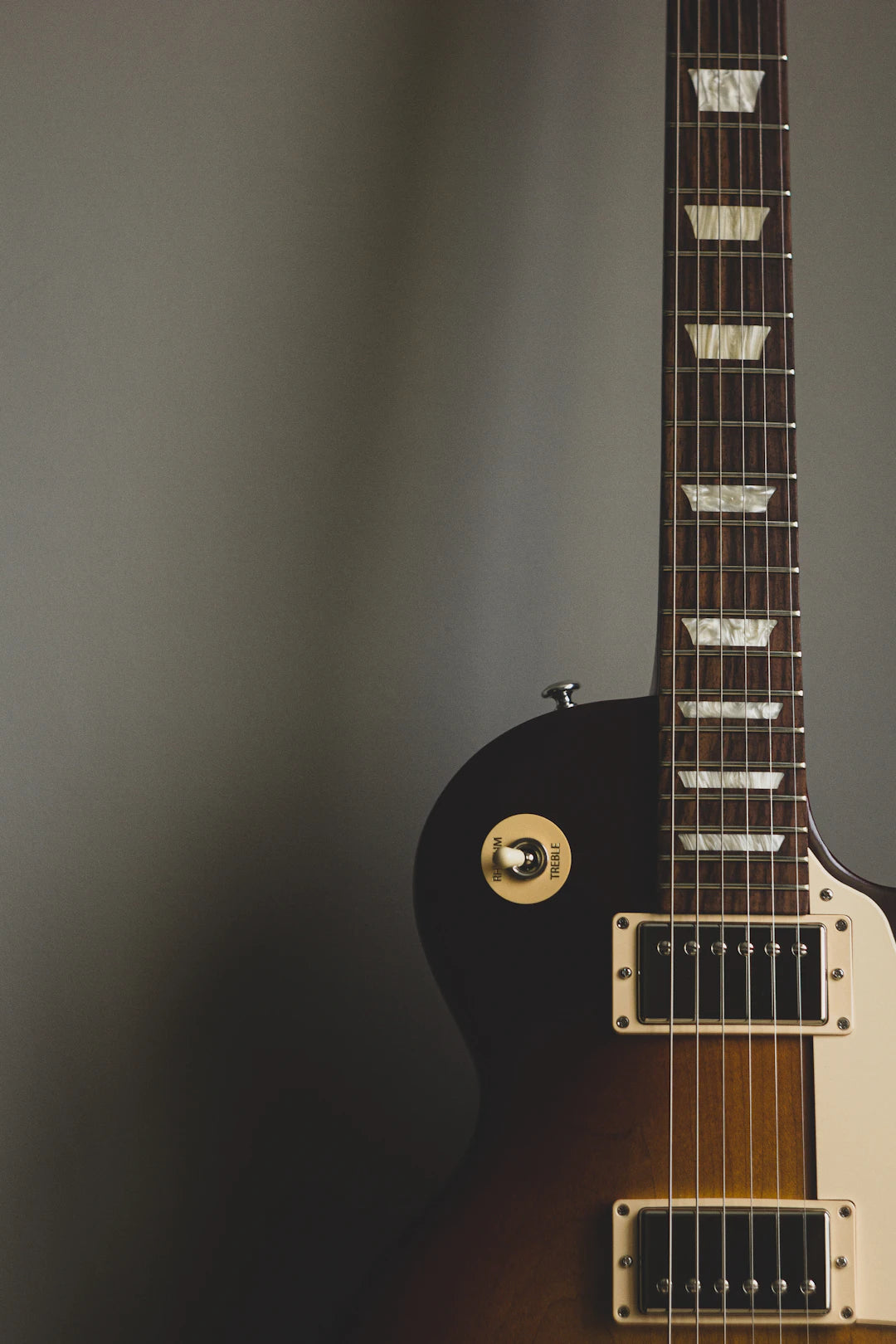Frequently Asked Questions
1. What is impedance in guitar pickups?
2. How does impedance affect the tone of my guitar?
3. What is the difference between single-coil and humbucker pickups in terms of impedance?
4. Can I measure the impedance of my guitar pickups?
5. How important is it to match impedance levels with effects pedals?
When it comes to the world of guitars, many factors contribute to the sound and performance of your instrument. One such factor that often gets overlooked is the impedance of guitar pickups. Whether you’re a seasoned musician or a beginner, understanding the implications of impedance can significantly enhance your playing experience and tone. In this article, we'll delve into what impedance is, its relevance in guitar pickups, and how it can impact the sound of your instruments like the Odyssey Legacy '57 Series HB.
What is Impedance?
Impedance is the measure of opposition that a circuit presents to a current when a voltage is applied. In simpler terms, it’s similar to resistance but varies with frequency. Impedance is measured in ohms (Ω) and plays a crucial role in the performance of electronic devices, including guitar pickups.
In the context of guitar pickups, impedance affects not only the strength of the signal coming from the pickups but also their interaction with amplifiers and effects pedals. Understanding this concept is essential for both maintaining your gear and achieving the desired sound.
The Science Behind Guitar Pickups
To grasp the importance of impedance, let's first understand how guitar pickups work. Guitar pickups are essentially electromagnetic devices that convert string vibrations into electrical signals. They consist of magnets wrapped in coils of wire. When a string vibrates above the pickup, it disturbs the magnetic field, generating an electrical current.
The Role of Impedance in Guitar Pickups
The impedance of guitar pickups is primarily determined by the number of wire turns in the coil, the type of magnets used, and the quality of the materials. High impedance pickups (often 10k ohms or more) tend to produce a stronger signal which can result in a brighter tone. Conversely, low impedance pickups (usually below 10k ohms) produce a weaker signal, often yielding a darker and smoother sound.
Understanding the relationship between impedance and tone can give you greater control over your sound. For example, if you’re using high-gain amplifiers, a lower-impedance pickup might complement your setup better by reducing unwanted noise and hum.
Types of Guitar Pickups and Their Impedance
There are two main types of guitar pickups: single-coil and humbucker. Each type has its own characteristics, including impedance levels.
Single-Coil Pickups
Single-coil pickups generally have higher impedance, typically around 7k to 9k ohms. They are known for their bright, sharp sound and pronounced high frequencies. This makes them a popular choice for genres like rock and country, where clarity is key.
However, their high sensitivity to electromagnetic interference can lead to unwanted noise, which is why they often come with shielding. If you’re looking to achieve a classic sound reminiscent of the Odyssey Legacy '57 Series HB, single-coils may be the way to go.
Humbucker Pickups
On the other hand, humbucker pickups usually have a lower impedance, averaging between 7k and 16k ohms. They are designed to cancel out noise, resulting in a fuller, warmer sound that’s often favored in genres like jazz, metal, and blues. The dual-coil design allows humbuckers to handle higher output without distorting the sound quality.
Even within the humbucker category, impedance can vary. Understanding the impedance can help you select a humbucker that meets your tonal preferences and works well with your amplifier settings.
Measuring Impedance in Guitar Pickups
If you're curious about the impedance of your guitar pickups, measuring it is relatively straightforward. You’ll need a multimeter set to measure resistance (ohms). Simply follow these steps:
- Make sure your guitar is unplugged and remove the pickup cover if necessary.
- Touch the multimeter probes to the pickup's terminals. One probe goes on the positive terminal while the other goes on the negative terminal.
- Read the measurement on the multimeter. This will tell you the pickup’s impedance.
It's worth noting that impedance can vary slightly based on temperature and other environmental factors, but this measurement should offer a close approximation.
How Impedance Affects Your Tone
The implications of impedance don't end with measurement. They play a vital role in shaping the overall tone of your guitar. Here are some ways impedance can influence your sound:
Interaction with Amplifiers
The impedance of your guitar pickups can affect how they interact with your amplifier. High-impedance pickups tend to drive amplifiers harder, producing a sharper and more aggressive tone. On the other hand, lower impedance pickups can lead to a cleaner signal, which is ideal for more intricate musical passages.
Understanding this relationship is crucial for achieving the sound you want from your rig. If you're using hybrid setups that include effects pedals, it's even more important to consider impedance to avoid unwanted distortion or loss of clarity.
Impact on Effects Pedals
When it comes to connecting your guitar to effects pedals, impedance can influence how effects are processed. Each pedal has an input and output impedance, and mismatched levels can lead to suboptimal performance. For example, if a high-impedance pickup feeds into a low-impedance input, you may lose some high-frequency signals and overall clarity.
Conversely, matching the impedance levels can enhance the tonal quality of your effects, allowing for greater creative expression and more precise control over your sound.
Choosing the Right Pickup for Your Style
When selecting guitar pickups, impedance isn’t the only factor to consider, but it’s undoubtedly an important one. Here are some tips for choosing the right pickups for your playing style:
- Consider Your Genre: Different musical styles often favor specific pickup types. If you play punk rock, for example, high-impedance single-coils may give you the bright, cutting tone you need.
- Experiment: Don’t shy away from trying different types of pickups. Sometimes the best way to truly understand their impact is through hands-on experience.
- Pairing with Amplifiers: Be mindful of your amplifier’s specifications. The synergy between your pickups and amp can create a balanced and dynamic sound.
The Importance of Pickup Height
It's not just impedance that affects your tone; pickup height plays a crucial role as well. If your pickups are too close to the strings, they can create magnetic pull, which diminishes sustain. Conversely, if they’re too far off, the output will be weak.
You may want to experiment with pickup height to find a balance that allows your guitar to sing. The right height will enhance your guitar’s tonal qualities while keeping the impedance in check for optimal performance.
Tuning Your Guitar for the Best Sound
Once you have your pickups set and correctly wired, it’s essential to ensure that your guitar is properly tuned. Impedance will affect how your guitar sounds when played in harmony, so adjusting your tuning can also influence the perceived impedance. A well-tuned guitar not only enhances tone but also extends sustain and clarity, factors that are crucial for any musician.
Frequently Asked Questions About Impedance and Guitar Pickups
If you still have some lingering questions about impedance and its role in guitar pickups, you’re not alone. Here are some frequently asked questions:
Does impedance affect the output volume of guitar pickups?
Yes, higher impedance pickups generally produce a stronger output signal, which can lead to increased volume levels when plugged into an amplifier.
Can I use high-impedance pickups with low-impedance amplifiers?
While you can use high-impedance pickups with low-impedance amplifiers, achieving the desired tone may require additional adjustments in settings or using impedance-matching devices.
How important is impedance when recording in a studio?
Impedance plays a significant role in studio recordings. Matching your pickups with the correct input can help capture the true essence of your sound, minimizing unwanted artifacts.
Tuning Into Possibilities
Understanding the impedance of guitar pickups opens up a new world of tonal possibilities. Whether you prefer the sharp clarity of single-coils or the warm full-bodied sound of humbuckers, knowledge is power. Armed with this information, you can make informed choices about your pickups, effects, and amplifiers, ultimately allowing you to unleash your full creative potential.
So get out there, experiment, and discover the perfect setup for your sound. The right impedance is just the beginning of your journey toward achieving the music that resonates with you and your audience!
Linked Product
Odyssey Legacy '57 Series HB
The Odyssey Legacy '57 Series HB is designed for guitarists seeking a balanced tone with warm, vintage characteristics. Its unique impedance allows for a smooth response across various frequencies, making it suitable for both clean and distorted sounds. This pickup is a practical choice for musicians looking to enhance their understanding of guitar pickup impedance and its impact on overall sound quality.
View Product










